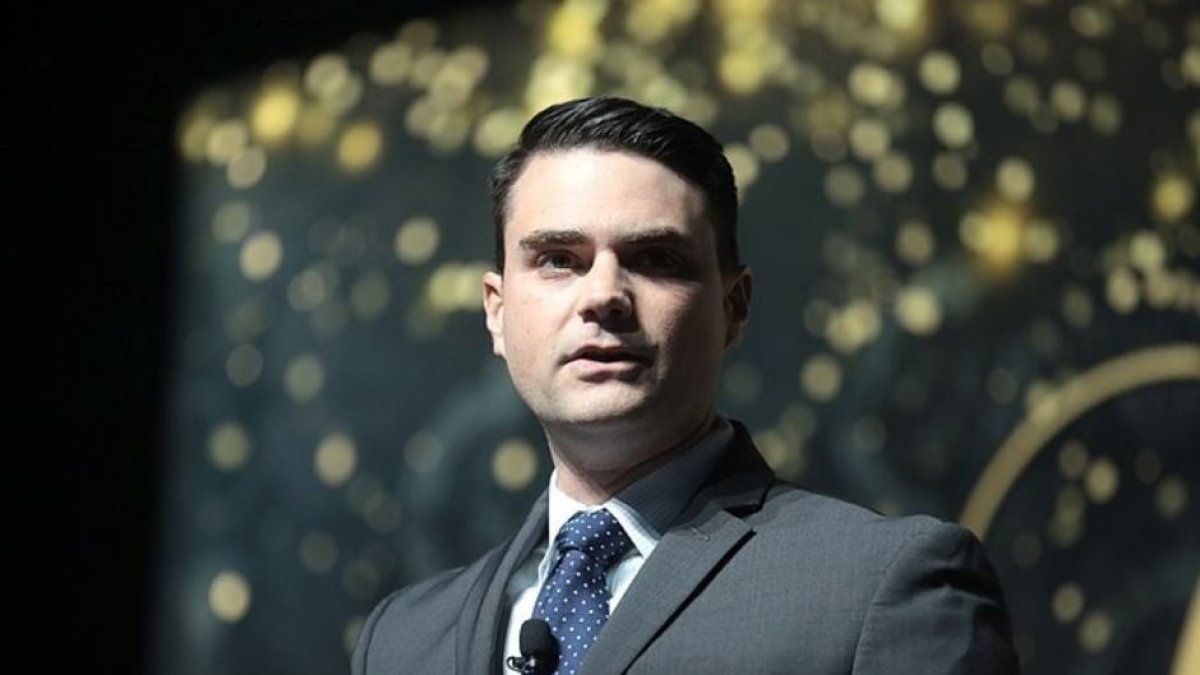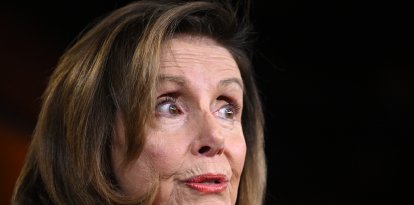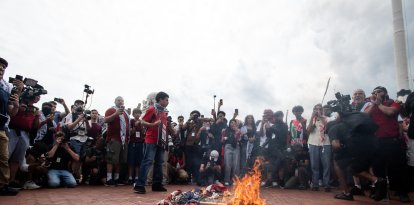From fifth to first: The worst presidents in history according to Ben Shapiro
The popular political commentator prepared a ranking that stood out for having a majority Democratic presence.

Wikimedia Commons
Like every third Monday in February, the United States celebrates Presidents' Day, which began as a tribute to George Washington and ended as a day to celebrate all the past tenants of the Oval Office. In this context, Ben Shapiro was encouraged to compile a ranking of the five worst presidents in the country's history.
The popular political commentator first distanced himself from the analyses commonly published by historians, given that, in his opinion, they manifest animosity against Republicans. Therefore, as part of a video series titled 'Facts,' he revealed the five worst American leaders.
Jimmy Carter
Shapiro began the list with the former Georgia governor and peanut farmer, who came to power in 1977 after defeating Gerald Ford. Remembering his name, he mentioned the stagflation that plagued the country during his term. In other words, high levels of inflation combined with high unemployment numbers.
He mentioned the gasoline shortage, the long lines to fill up with fuel, and the Iran hostage crisis of 1979.
Not content with this, the co-founder of The Daily Wire mentioned that Carter's post-presidency was even worse than his presidency.
"He built some houses for homeless people, but he also hung out with Hamas and actively wrote speeches for uber terrorist Yaser Arafat, claiming that Hamas's election was actually legitimate. He opposed U.S. intervention in the Gulf War in Kuwait, he actively wrote letters to other members of the U.N. Security Council asking them to vote against the United States. He helped broker the North Korean nuclear deal that eventually led to North Korea gaining nuclear weapons," Shapiro said.
Barack Obama
The second name on the list happens to be one of the youngest presidents in history and the first African-American to reach the White House. Specifically, Shapiro argued that Obama worsened race relations in the United States, given that by 2013, 77% of white adults and 66% of African-American adults had a good perception of race relations in the country. However, by 2015, that number had fallen to 45% for the first group and 51% for the second.
Regarding the exit from the 2008 crisis, he noted that "he presided over the weakest economic recovery in modern American history because his decision was he was going to spend endless amounts of money and regulate the living hell out of the economy."
Finally, he was not very happy with his foreign policy. "[Obama] alienated traditional allies like Israel, sending pallets of cash to America's enemies like Iran. He basically seated all of Crimea to Russia and then seated leadership in Syria to Russia. He destabilized the Middle East by backing the Arab Spring, radically pulled American troops out of Iraq and led to the rise of ISIS. And by the way, he spent more money than all prior 43 presidents combined," the conservative commentator continued.
James Buchanan
Although many consider it directly the worst in history, Shapiro argued that the next two have enough reasons to surpass it. Even so, he claimed that he did practically nothing to stop the Civil War and criticized him for his racial stances, claiming that "he actually knew the outcome of Dread Scott, which essentially ruled that black people were not citizens of the United States and could not be citizens of the United States."
Continuing with the racial problem, he mentioned a presidential speech in which he downplayed slavery, which he described at the time as a matter of "little practical importance." He also highlighted his lack of desire to confront the secession aspirations that the states demonstrated at the time.
Lyndon B. Johnson
In Shapiro's eyes, the second worst president in American history was the creator of the so-called 'Great Society,' a policy that tried to declare war on poverty but that culminated in the spending "trillions upon trillions upon trillions of dollars making government encroaching in nearly every area of American life."
He mentioned that the program discouraged marriage, particularly in the African-American community, taking the percentage of single African-American mothers from 20% in 1960 to more than 70% in 2024.
"According to the CATO Institute Michael Tanner, between 1963 and 2010, the federal government spent $13 trillion fighting poverty. The poverty rate, by the way, in 2012 was 15%, slightly higher than it was in 1966. So you spent $13 trillion to increase the poverty," Shapiro continued.
He also emphasized his leadership during the Vietnam War, which he defined as the "worst" in the history of the United States.
However, he highlighted his two most famous pieces of legislation, the Civil Rights Act of 1964 and the Voting Rights Act of 1965.
Woodrow Wilson
Shapiro had no qualms about naming Woodrow Wilson the worst president in American history. The Democrat came to power in 1913, taking advantage of the division of the Republican vote between William Howard Taft and Theodore Roosevelt.
Shapiro defined Wilson as an "authoritarian" who despised the rest of the powers and had an almost unlimited vision of presidential powers. He exemplified his point by citing the Sedition Act of 1918, which directly targeted freedom of expression. It prohibited to "print, utter or publish any false scandalous and malicious writing about the government."
He also shot at the moral side of the former president. "He was a fan of eugenics, actually pushed for compulsory sterilization of people with Down syndrome in 1907, before he was president. Even signed a compulsory sterilization bill while he was governor of New Jersey in 1911," Shapiro noted.
Wilson once again implemented segregation in the Armed Forces and even screened 'The Birth of a Nation' in the White House, considered one of the most racist films of its time. To conclude, Shapiro mentioned the industrial nationalizations that occurred under his mandate and the economic mismanagement that led to the financial crisis of 1920.
"So, a terrible president economically, terrible president wartime, terrible president on race, terrible president in terms of structuring a massive federal bureaucracy... just a horrific president," Shapiro concluded.

























